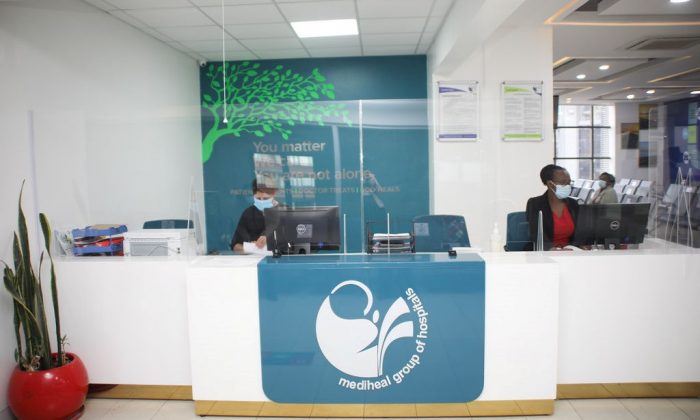[vc_row][vc_column][vc_tta_tabs style=”modern” active_section=”1″ title=”FAQs”][vc_tta_section title=”Kidney Transplant” tab_id=”kidney-transplant-faq” el_class=”kidney-transplant”][vc_toggle title=”When is the best time to have a kidney transplant??”]Assuming there is any chance of this happening, it is ideal to have a transfer before you have dialysis or spend quite a while on dialysis. Patients who have a living kidney giver have the most obvious opportunity with regards to staying away from dialysis or being on dialysis for less time than if they needed to hang tight for a perished benefactor kidney. In the event that you have a living benefactor, you could be able to go through a “preemptive transfer”; that is, before you at any point need dialysis. Studies show that a relocated kidney from a living giver works longer, and the beneficiary lives longer, contrasted with those patients who have had dialysis preceding transfer.[/vc_toggle][vc_toggle title=”How do I get a kidney?”]Once in a while a family member, friend, or companion can give a kidney to a friend or family member, given the expulsion of the kidney won’t hurt the living benefactor’s wellbeing. Or then again a Good Samaritan (an empathetic outsider) ventures forward to give. The giver should go through an exhaustive clinical assessment that incorporates, in addition to other things, blood work to survey tissue similarity and the probability of organ dismissal.[/vc_toggle][vc_toggle title=”What if my body rejects my new kidney?”]Rejection is a signal that your immune system has identified the new kidney as foreign tissue and is trying to get rid of it. Preventing rejection with immune-suppressing medication is the first priority. The most common sign of rejection is a change in kidney function (an increase in creatinine, a waste product), as measured by a blood test. This is why you need frequent blood testing in the first three months after transplantation and regular testing after that. If a kidney biopsy and kidney ultrasound confirm the rejection episode, then the transplant team will increase the amount of anti-rejection medication or prescribe a different combination of anti-rejection drug therapy. Using medicine, we can successfully reverse most rejection episodes, if we detect it early enough. However, if the episode is severe, it may shorten the overall life span of the new kidney.[/vc_toggle][/vc_tta_section][vc_tta_section title=”Neurology” tab_id=”neurology-faq”][vc_toggle title=”What is neurology?”]A multi-disciplinary branch of biology, neuroscience is the study of the nervous system. Neuroscience is an interdisciplinary science that works closely with other disciplines and focuses on medical aspects of the nervous system.[/vc_toggle][/vc_tta_section][vc_tta_section title=”Urology” tab_id=”urology-faq” el_class=”urology-tab”][vc_toggle title=”What is urology?”]Urology is the branch of medicine that deals with surgical and medical diseases of the male and female urinary tract system and their reproductive organs.[/vc_toggle][/vc_tta_section][vc_tta_section title=”IVF” tab_id=”ivf-faq”][vc_toggle title=”What is IVF (In Vitro Fertilization)?”]In-vitro fertilization (IVF) is a type of assisted reproductive technology (ART) used to treat infertility that has failed to respond to other medical or surgical interventions. This is a form of infertility treatment in which an egg is surgically removed from the ovary and fertilized outside the body.[/vc_toggle][/vc_tta_section][vc_tta_section title=”Cardiology” tab_id=”cardiology-faq”][vc_toggle title=”What is Cardiology?”]The Department of Cardiology is a field of medicine that offers preventive, diagnostic, and therapeutic services for cardiovascular (heart) diseases.[/vc_toggle][/vc_tta_section][vc_tta_section title=”Oncology” tab_id=”oncology-faq”][vc_toggle title=”What is Oncology?”]Oncology and onco-surgery is a branch of medicine that deals with the treatment of Cancer.[/vc_toggle][/vc_tta_section][vc_tta_section title=”Orthopaedics” tab_id=”orthopaedics-faq”][vc_toggle title=”What is Orthopedics?”]Orthopedics is the branch of surgery concerned with conditions involving the musculoskeletal system. The largest number of orthopedic surgeries are Joint Replacement surgeries (Hip, Knee & Shoulder).[/vc_toggle][/vc_tta_section][vc_tta_section title=”Pulmonology” tab_id=”pulmonology-faq”][vc_toggle title=”What is Pulmonology?”]Pulmonology or pneumology is a medical specialty that deals with diseases involving the respiratory tract. Pulmonology is considered a branch of internal medicine and is related to intensive care medicine.[/vc_toggle][/vc_tta_section][/vc_tta_tabs][/vc_column][/vc_row]
